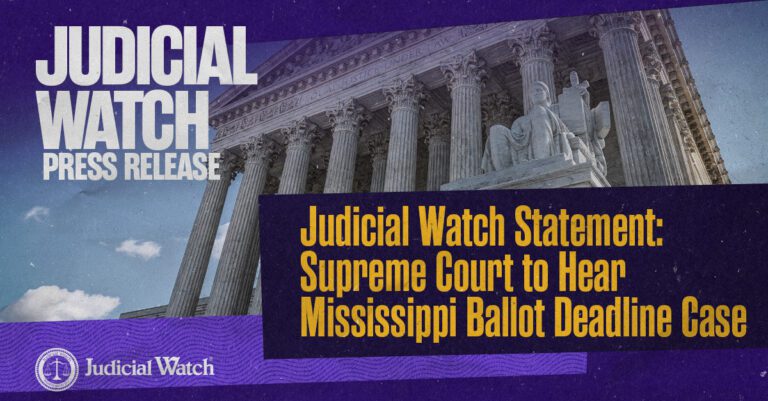
Judicial Watch: Trial on Constitutionality of California’s Gender Quotas for Corporate Boards Scheduled for December 1

(Washington, DC) – Judicial Watch announced a California Superior Court trial for December 1 in a taxpayer lawsuit challenging constitutionality of California’s gender quotas for corporate boards of directors (Robin Crest et al. v. Alex Padilla (No.19STCV27561)). The trial is expected to last three weeks and will take place in a Los Angeles courtroom
Judicial Watch filed the lawsuit in Los Angeles County Superior Court in 2019, on behalf of California taxpayers, Robin Crest, Earl De Vries and Judy De Vries. The lawsuit challenges a 2018 law, known as Senate Bill 826, which requires every publicly held corporation headquartered in California to have at least one director “who self-identifies her gender as a woman” on its board of directors by December 31, 2019. The law also requires corporations to have up to three such persons on their boards by December 31, 2021, depending on the size of the board.
Judicial Watch argues that California’s quotas for women on corporate boards violates the Equal Protection Clause of the California Constitution, among other provisions, and asks the court to permanently enjoin any expenditure of taxpayer funds to implement the quotas.
In its brief prepared for the trial Judicial Watch points out:
Even time spent by public officials carrying out an unlawful law can be enjoined…. Application of the law as written will result in a state official expending taxpayer funds on an unlawful law unless the expenditures are enjoined.
***
California’s equal protection clause – is clear and well settled: “When the challenged statutory scheme employs express gender classifications, a plaintiff meets his or her burden [of establishing unconstitutionality] by pointing that out.”
It is undeniable that SB 826 expressly employs a gender-based classification. The law requires a pre-determined number of board seats be set aside exclusively for women (or females as defined). Accordingly, Plaintiffs will have satisfied the fourth and final element of their article I, section 7 claim based on the statute itself. The burden of justifying SB 826’s express gender classification (i.e., satisfying all elements of strict scrutiny analysis) shifts to Defendant …
A new study, published on November 18, found “a robust and significantly negative stock market reaction” to California’s gender quota mandate.
Before the quota bill passed, a California Assembly floor analysis identified a “significant risk of legal challenges” to SB 826. It characterized the legislation as creating a “quota-like system” and noted, “[T]his bill, if enacted into law, would likely be challenged on equal protection grounds … The use of a quota-like system, as proposed by this bill, to remedy past discrimination and differences in opportunity may be difficult to defend.” In signing SB 826 in September 2018, then-Governor Brown wrote that “serious legal concerns have been raised” to the legislation. “I don’t minimize the potential flaws that indeed may prove fatal to its ultimate implementation.” He signed the bill anyway, noting “Nevertheless, recent events in Washington, D.C. – and beyond – make it crystal clear that many are not getting the message.”
“This trial essentially puts ‘Critical Theory’ on the dock for a discriminatory gender quota mandate that is blatantly unlawful and unconstitutional,” said Judicial Watch President Tom Fitton. “SB826 would upend decades of settled constitutional law that prohibits discrimination based on sex. Even Gov. Brown, in signing the law, worried that it is unconstitutional. We hope this trial will vindicate the rule of law.”
In a previous filing in this case, Judicial Watch included expert analysis from Jonathan Klick, Ph.D., J.D., an expert in econometrics, statistics, and corporate law, who concluded:
In my opinion, the evidence offered in [the] declarations supporting Secretary Padilla’s motion for each of these points (underrepresentation of women on boards, discrimination as the cause of this underrepresentation, and that research shows a differential benefit of appointing women, as opposed to men, in terms of firm performance) is deficient and unreliable.
In September 2020, Judicial Watch also filed a taxpayer lawsuit to prevent California from enforcing Assembly Bill 979, which requires the same corporation subject to the gender-based quota also to satisfy racial, ethnic, sexual preference and transgender status quotas by the end of the 2021 calendar year.
In January 2021, Judicial Watch filed a public comment with the Securities and Exchange Commission in response to a proposed rule change requiring race and gender quotas on the boards of corporations listed on the Nasdaq exchange.

















